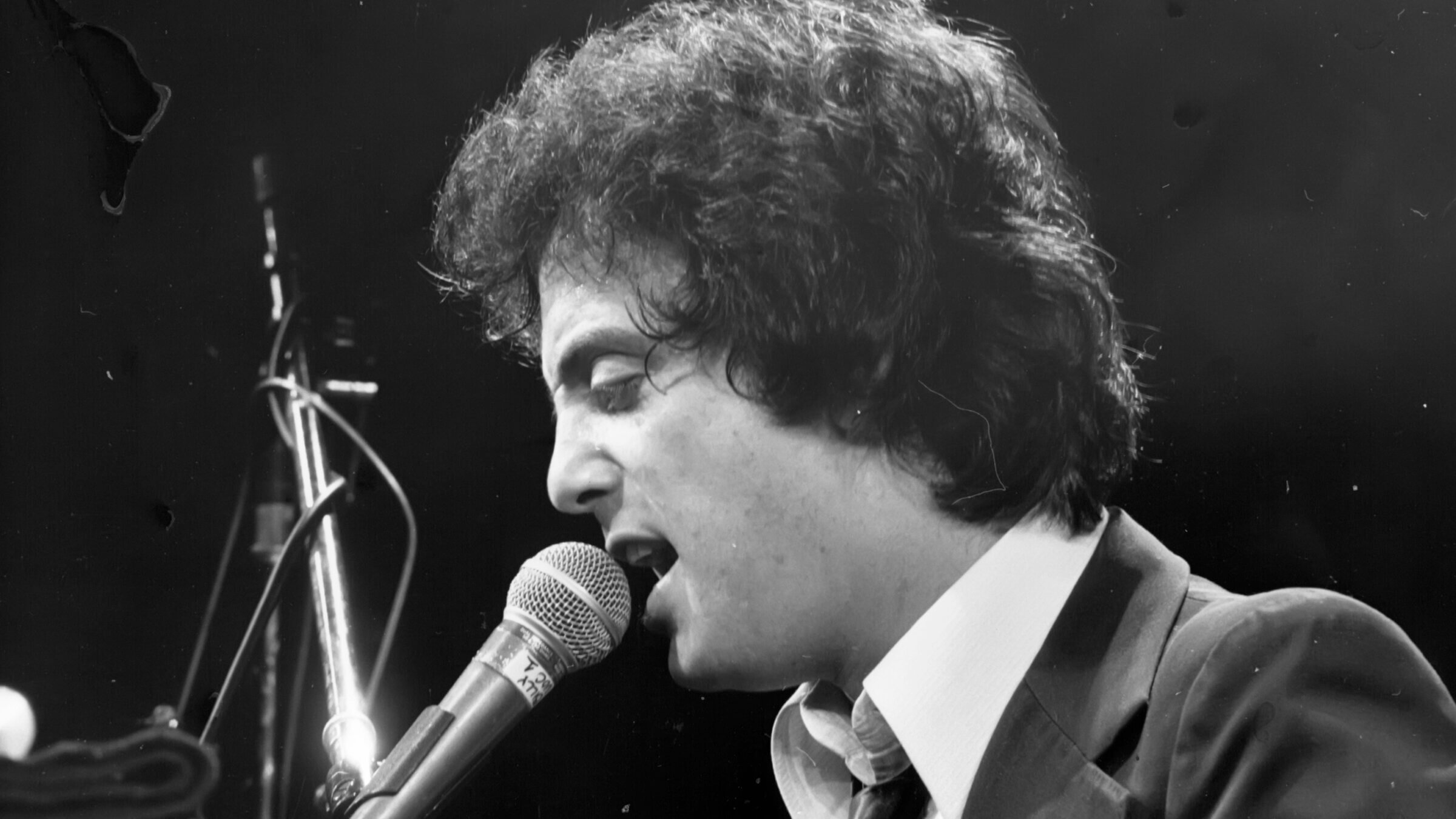Can 6 hours of Billy Joel turn critics into believers?
The HBO doc ‘And So it Goes’ makes the case for the Piano Man’s ongoing angst

Billy Joel in his “Piano Man” era. Photo by Robin Platzer/Images/Getty Images
In the Hebrew Bible, the prophet Joel foresaw a time of ruin, followed by redemption.
“Blow a horn in Zion,” he wrote, describing a locust plague. “Sound an alarm on My holy mount! Let all dwellers on earth tremble, for the day of GOD has come!”
Thousands of years later, a working-class kid from Hicksville would answer back: “Everybody’s talkin’ ’bout the new sound. Funny, but it’s still rock and roll to me.”
Billy Joel — whose sizable catalogue includes an apocalyptic anthem of New York, a hit accounting of history from the Truman administration to the 1980s Cola Wars and countless fawning and fatalistic ballads inspired by women who left him — is another sort of prophet. But he defies one of the trademarks of traditional seers, whose warnings are often neglected.
Joel (Billy) has sold over 160 million records and routinely sold out Madison Square Garden for a decade. Legions have heard his message, whether they wanted to or not. But like so many soothsayers who endeavor to speak to the world, he has been ridiculed.
“Billy Joel’s music elevates self-aggrandizing self-pity and contempt for others into its own new and awful genre: ‘Mock-Rock,’” journalist Ron Rosenbaum wrote in a merciless hit piece for Slate in 2009.
Rosenbaum is far from alone in this assessment. When Joel was at his peak, producing chart-topping, traditional standards in the heyday of punk, music critics savaged him. As he started swapping genres — guitar-forward rock, doo-wop, even gospel — he was dismissed as a pasticheur, dabbling in too many styles to have any authenticity of his own.
And so, without a unified sound, there emerged insteaed a thematic thrust. As Chuck Klosterman wrote, Joel “musically amplifies mainstream depression,” even if “he never tried to invent a new way to be sad.”
So entrenched is Joel’s divisiveness that a recent crossover episode of Abbott Elementary and It’s Always Sunny in Philadelphia had two characters rank his music on a scale from one to 10. One clocked him in at a negative five, the other, infinity.
Watching Joel for nearly six hours in Susan Lacy and Jessica Levin’s two-part documentary Billy Joel: And So It Goes, it’s hard not to feel like the haters were in some sense punching down.
The film, which covers Joel’s 50-year career, stopping before his announced hiatus from performing due to a diagnosis of normal pressure hydrocephalus, does much to explain the ungenerous appraisal of Joel’s music and the key to its longevity.
Joel’s origin story, by now well known, begins in hardscrabble Long Island. He played in high school bands — ditching one to play a Hammond organ in another — and had an early local radio hit before attempting a psychedelic rock two-hander called Attila.
He and his best friend and bandmate Jon Small lived together with Small’s wife Elizabeth Weber and their young son, Sean. When Joel fell in love with Elizabeth, feeling he betrayed Small, he tried to take his life, first with sleeping pills, leading to a days’-long coma, and then by drinking cleaning solution. (Weber ultimately became his wife, muse and manager; both she and Small are interviewed for the film, as are all of Joel’s exes, who seem to bear no ill will.)
After admitting himself to a psych ward, and seeing the other patients, Joel recalls, saying to himself “that’s it. I’m not gonna ever feel that sorry for myself again.”
But Joel never really stopped with the self-pity, and with good reason.
His first producer ruined his debut album, Cold Spring Harbor, speeding up the tape and making Joel’s audio sound like a chipmunk. Arriving in Los Angeles, he had a record deal with Columbia, but a legal battle with his old label forced him to eke out a living at a piano bar, a gig he’d immortalize in his breakout hit. He knows he sounded ungrateful, riding the success of “Piano Man” and turning around with the music industry takedown “The Entertainer.”
“Essentially, the ‘Piano Man’ song was about a guy kvetching about playing in a piano bar, and this follow up is the guy kvetching about having a hit record in the music business,” Joel said. “So, it’s sort of like, ‘Alright I’m doing well, let me screw this up somehow.’”
Joel has a self-destructive bent. His struggles with mental health, like his musical talent, were inherited.
His adoring mother, Rosalind, who always made sure they had enough money for Joel’s piano lessons, self-medicated with alcohol and would likely be diagnosed as bipolar today. His father, Howard, was a classically-trained pianist, who carried with him the horror of growing up Jewish in Nazi Germany and later liberating Dachau while fighting in the U.S. Army. Howard was abusive and left the family when Joel was 8. (Joel explains his family’s Holocaust story, and his decision to wear a yellow star at an August 2017 performance at Madison Square Garden in a moving segment in part two.)
Joel didn’t handle success well. As he snatched up Grammy awards and took to touring with his assembled band of Long Islandites, his drinking became a problem. His marriage to Weber ended. Her brother Frank took over managing him, and was later alleged to have bilked Joel out of millions of dollars, leaving him broke. Joel sued, Weber countersued. They ultimately settled.
Through a bounty of archival video, Lacy (2017’s Spielberg) and Levin show an intimate side of the piano man, with home movies of him and second wife Christie Brinkley and their daughter, Alexa. Joel is disarmingly funny, and his moments of levity make the darkness that followed him all the more tragic.
It’s curious that Lacy allotted twice the run time to Joel as she did Steven Spielberg, an artist who continues to produce new work. Joel’s pop music muse all but went silent in 1993 with River of Dreams, his last album of nonclassical music, and he only returned to performing solo after a Hurricane Sandy benefit, which the film argues sparked his renaissance, and perhaps that mention in Olivia Rodrigo’s “Driver’s License.”
But this film has some heavier lifting to do, setting the record straight on Joel’s three divorces and several tabloid-fodder car accidents and making the case for his music, critically maligned but massively popular, and its place in the American songbook.
Bruce Springsteen heralds Joel as a more melodically gifted than him, with roots coming from Tin Pan Alley and Broadway (Boss, this is taking forever, just say Jewish). Joel, interviewed at his piano, demonstrates how “Uptown Girl” would work as a Mozart composition. A panel of embittered rockers — Don Henley and a chain-smoking John Mellencamp — defend Joel against the snobbery of the critical establishment. And yes, Joel insists he doesn’t have any DUIs (“fuck you,” he adds).
A resentment may remain, even as Joel now owns the Long Island mansion he first admired while working on an oyster boat as a teen. As in the case the documentary’s title song, And So It Goes, some sour notes will always stay unresolved.
“He’s this guy who by any measure has achieved all of the dreams that any singer-songwriter would want, and yet the overriding theme of his songs is sort of like this existential dissatisfaction,” music critic Steven Hyden says in the film.
Joel may never be completely satisfied, but that doesn’t neecssarilly make him smug or self-aggrandizing. The documentary argues for a reappraisal, and may in fact, signal a day of redemption is at hand.

















